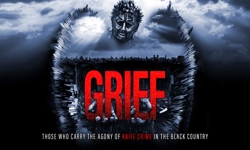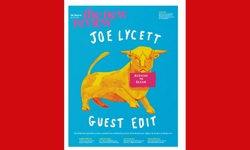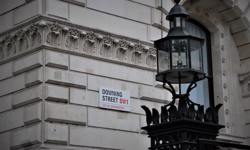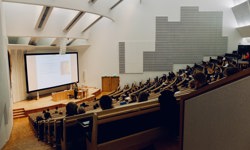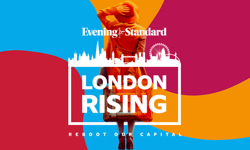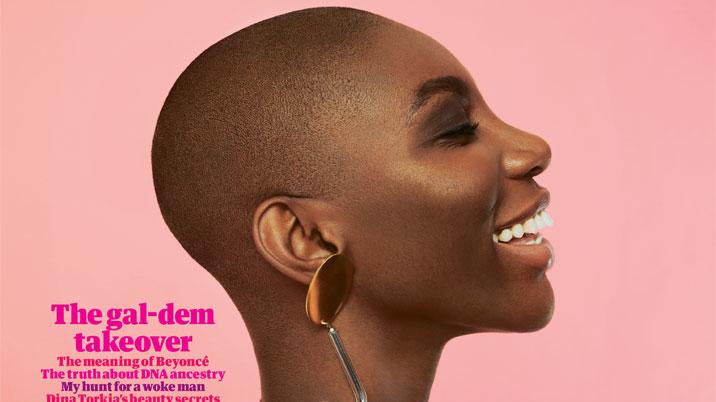
Every page of Weekend, cover to cover, has been filled with work that reflects gal-dem's mission to bring the work of underrepresented creatives - including writers, photographers, illustrators, stylists and make-up artists - to wider audiences, says The Guardian.
The issue features an interview and photoshoot with Bafta-winning British actor, screenwriter and playwright Michaela Coel, best known for her C4 sitcom Chewing Gum , and now the lead in BBC autumn drama Black Earth Rising as well as Netflix musical Been So Long.
Elsewhere in the magazine, Humans actor Gemma Chan has answered the Q&A column; Ash Sarkar is standing in for Hadley Freeman (writing about her "problematic faves"); Afua Hirsch goes behind the scenes of gal-dem magazine; Georgina Lawton writes about the emotional impact of DNA ancestry tests for people of colour; Kuba Shand-Baptiste decodes the meaning of Beyonce, from a superfan point of view; Diane Abbott reveals her work-life balance; young activists share their tips for effective campaigning.
Plus there's an advice column from bestselling author Chidera Eggerue (aka Chiddy the Slumflower); YouTuber Dina Torkia writes about her life in beauty; and Instagram influencer Simran Randhawa writes the fashion column. There's a guest crossword-setter and quiz-setter, and columns by Weekend regulars Bim Adewunmi, Coco Khan and Sharmadean Reid.
In addition to the articles, all photography and illustration has been created by women and non-binary people of colour, including photographers Rosaline Shahnavaz, Yves Salmon, Michelle Marshall and illustrators Mel Lou, Hannah Buckman, Leyla Reynolds and Soofiya.
Melissa Denes, Guardian Weekend editor, said: "This has been such a fun and inspiring issue to work on, with a team of truly impressive young editors, writers and creatives. On Weekend, we value diversity when it comes to the people we interview, who write and work for us, who are voices in our features, and who appear in our photoshoots. But gal-dem's takeover has moved the dial in a really interesting way, and proved we have further to go when it comes to our bylines. I am white but my daughters are not, and in a media (and political) landscape which features too few girls and women who look like them, gal-dem are the agents of change we need!"
Ruth Lewy, Guardian Weekend deputy editor, said: "Almost exactly a year ago, I approached gal-dem to discuss how we might collaborate. I have always admired their strong vision, creativity and the stories they tell, and wanted to see if there might be something powerful we could do together. Their voices, our platform.
When Charlie and Liv suggested they take over the entire issue, I was thrilled. Since then, they've been hugely busy with multiple high-profile events, launches and projects, while we worked on the Guardian's tabloid relaunch. But working on this issue over the last three months has been a total joy.
It has made us consider all the talent we use - not only the people we feature, but the bylines behind the scenes. Looking through the issue populated by women and non-binary people of colour is truly exciting. I can't wait to hear what people think."
Liv Little, gal-dem founder and editor-in-chief, said: "If someone had told us when we started gal-dem, almost three years ago, that we'd have the opportunity to take over the Guardian Weekend we would have laughed.
It's an incredible opportunity for both our teams to learn from each other. The journalistic integrity of The Guardian has been something we've been massively inspired by, and having the chance to commission an entire team of women and non-binary people of colour to produce this issue has been overwhelming.
gal-dem began as a response to a severe lack of representation in a media landscape that is 94% white and 55% male and here we are, taking up space in an unfiltered way. We hope that this is part of a wider shift in women and non binary people of colour being commissioned to write about whatever interests them. We've still got a long way to go but are hopeful that through collaborations like this and continuing the work that we do, things will continue to shift in the right direction."




